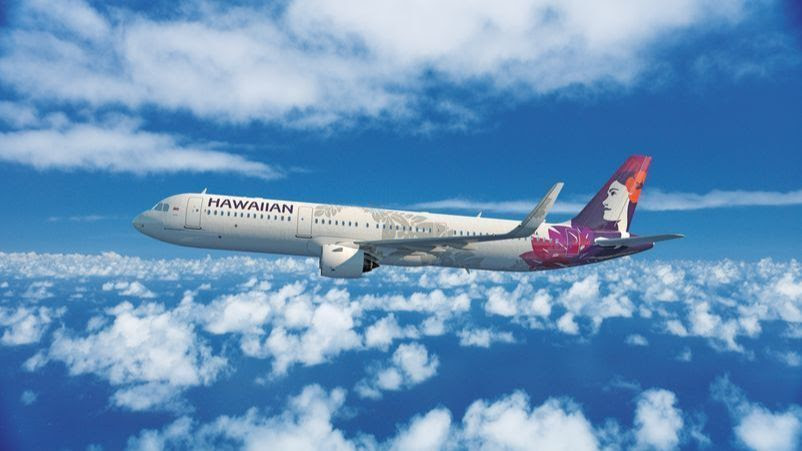White House Initiative Promotes Green Jet Fuel Production

The Biden-Harris Administration is taking critical steps to advance the use of cleaner and more sustainable fuels in American aviation by coordinating leadership and innovation across the federal government, aircraft manufacturers, airlines, fuel producers, airports and non-governmental organizations.
The White House’s sustainable fuel initiative will help make progress toward Hawaiʻi’s climate goals for 2030 and are essential to unlocking the potential for a fully zero-carbon aviation sector by 2050, according to a press release from the Democratic Party of Hawai’i.
With about 700 million gallons of jet fuel being combusted in the Hawaiian islands each year, it is “believed to be Hawaiʻi’s largest single source of carbon emissions,” the release said.
In Hawaiʻi, domestic aviation represents 38.5% of transportation-related emissions, compared to 11% nationwide.
The key federal actions announced by the White House include:
- A new Sustainable Aviation Fuel Grand Challenge to inspire the dramatic increase in the production of sustainable aviation fuels to at least 3 billion gallons per year by 2030.
- New and ongoing funding opportunities to support sustainable aviation fuel projects and fuel producers totaling up to $4.3 billion.
- An increase in R&D activities to demonstrate new technologies that can achieve at least a 30% improvement in aircraft fuel efficiency.
- Efforts to improve air traffic and airport efficiency to reduce fuel use; eliminate lead exposure; and ensure cleaner air in and around airports.
- The demonstration of US leadership both internationally and through the federal example.
Specific to Hawaiʻi, as part of the plan, the Federal Aviation Administration will make 14 grant awards with FY21 funds to the Aviation Sustainability CENTer (ASCENT) university center of excellence totaling more than $3.6 million.
The grants will support the sustainable aviation fuel approval clearing house in conducting evaluation testing to ensure that new fuels are safe for use. Additionally, local biofuel producers and researchers will be eligible for loan guarantees and further grants to support innovative technology to avoid, reduce, or sequester greenhouse gas emissions. The University of Hawaiʻi is a member of ASCENT.
“Climate change is an existential threat, especially for us in Hawaiʻi and throughout the Pacific, and we need to act now,” said US Rep. Kai Kahele (HI-02), who sits on the House Transportation and Infrastructure Committee. “Increasing research and development exhibits significant promise for those in our local tech industry and our institutions of higher education, many of whom are essential in the R&D of biofuels and the conversion to green energy,”
Honolulu City Councilmember Radiant Cordero, who chairs the Council’s Committee on Transportation, Sustainability and Health, and whose district includes the Honolulu International Airport, said: “With numerous daily cargo and passenger flights, essential to serve our unique and isolated geographic location, it is imperative Hawai‘i continues to embrace innovation to achieve carbon net neutrality by 2045. Unified solutions to reduce the effects of aviation carbon emissions furthers the balance of economic growth and environmental sustainability in Hawai‘i. Critical, proactive climate efforts, such as the Biden-Harris initiative, initiate conversations and create tangible goals to protect the risks climate change presents to Hawai‘i’s environment.”





_1768613517521.webp)

